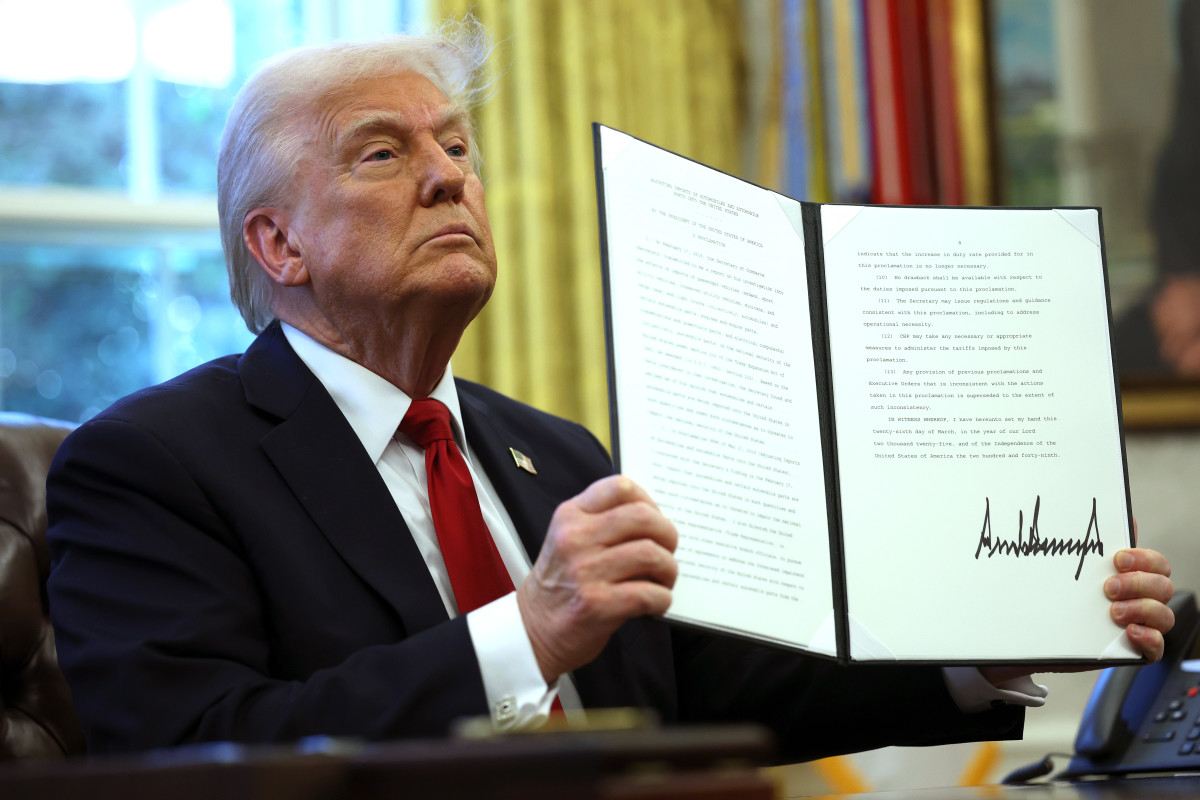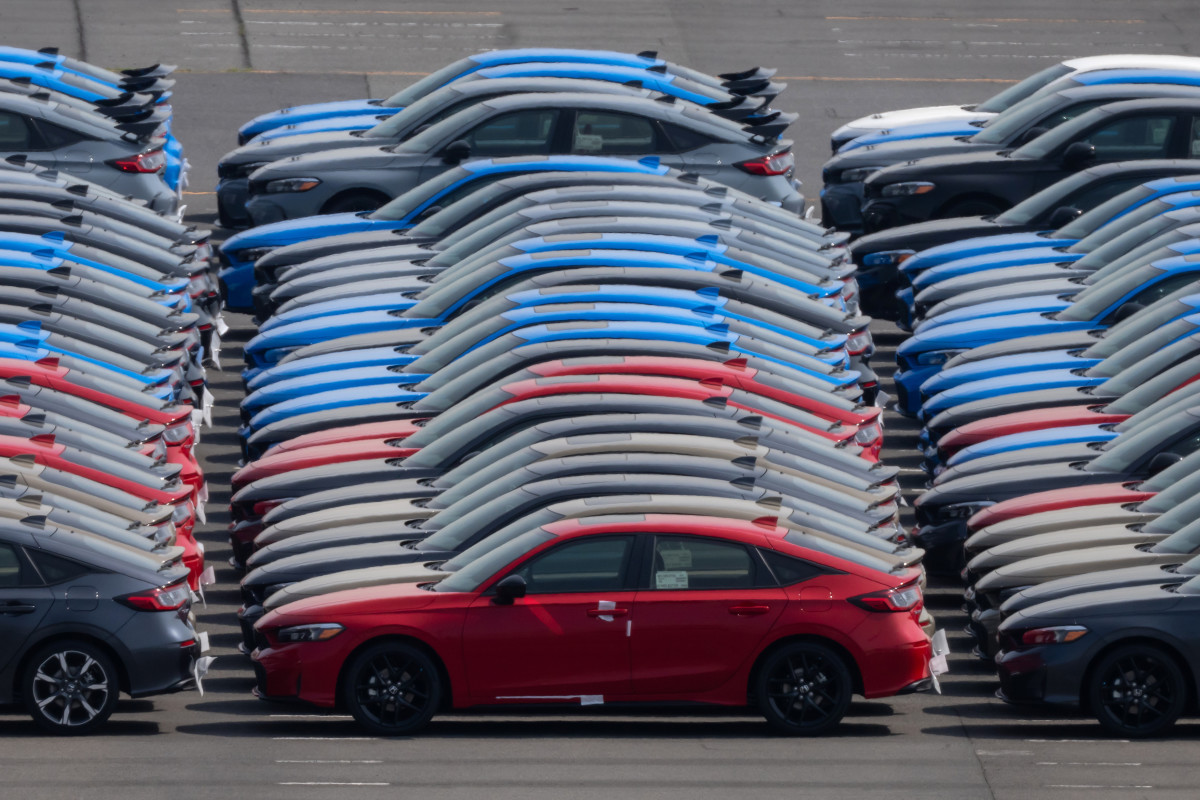One of Wall Street’s most disruptive voices is sounding the alarm about Trump’s tariff impact on the auto industry.
In a new note published to investors late on April 6, Wedbush Securities analyst and social media firebrand Dan Ives gave a stern warning about the true impact of President Donald Trump’s tariff policy in regards to the automotive industry. The voice usually known for his bullish and optimistic takes on Tesla aired a rare warning, saying that Trump’s planned tariffs are a potential “black swan event,” warning that the entire global automotive ecosystem could be disrupted if these trade measures take effect.
Getty Images
What Ives is particularly worried about is Trump’s sweeping 25% tariffs on all cars imported from other countries, which were signed on March 26 and took effect on April 3. The President also plans to apply tariffs on “key automobile parts” like engines, transmissions, and electrical components “no later than May 3,” as government officials still need to find a way to determine their non-US content accordingly.
Ives indicates that Trump’s expectations with the tariff scenario are in fantasyland. Though Trump envisions a future where all cars sold in the U.S. are built in the U.S., automakers that sell in the U.S. market will immediately feel some far-reaching consequences, as it could create more expensive cars, drive down consumer demand, and trigger a logistical crisis across the supply chain of every single automaker.
“The tariffs are a debacle of epic proportions for the auto industry and US consumers,” Ives wrote. “The concept of a US-made car with all US parts is a fairy tale fictional narrative.”
Getty Images
Americans will pay more for cars, Ives says
Ives warns that, as written, the tariffs “will send the auto industry into upside down mode.” He and his colleagues estimate that the average price of vehicles in the U.S. could significantly jump—anywhere between $5,000 at its lowest and up to $15,000. He warns that if the industry sees sharp price hikes like this, it could lead to a 15% to 20% decline in new car purchases in 2025, a drop in demand that would shake up everyone from automakers, franchised dealers, suppliers, and the average car buyer.
In addition, Ives warned that these tariffs also have wide implications for automakers that build their cars in the United States—especially Detroit’s Big Three and Tesla—import some components from abroad. “Even US automakers that produce cars in the US have ~40%-50% of auto parts that come from abroad,” Ives wrote. “A US car with all US parts made in the US is a fictional tale not even possible today.”
Ives put it straight that any attempt to change or relocate just one tiny portion of the auto industry’s supply chain back to the United States would be a logistical and financial challenge that lasts longer than the Trump administration. Additionally, he emphasized that contracts between suppliers and automakers are typically signed years before models commence production, and it could take four to five years or longer for companies to build out new factories and production hubs.
Related: Tariffs Predicted to Decrease US and Canada Auto Sales by 1.8m as Audi Holds Cars in Ports
From Ives and his colleagues’ estimates, moving just 10% of the auto supply chain from overseas to the U.S. would take at least three years and cost hundreds of billions of dollars, costs that will be passed onto the consumer.
“In our view, it would take 3 years to move 10% of the auto supply chain to the US and cost hundreds of billions with much complexity and disruption,” he said. “We believe this adds up to $100 billion of costs annually to the auto industry and will essentially get passed directly onto the consumer and clearly erode demand on Day 1 of tariffs.”
“In a nutshell, this 25% auto tariff number is hard to digest and will continue to put major pressure on GM and other auto makers/ suppliers globally (including Tesla) until some sign of negotiations or changes to this current policy is seen by the market,” he said. “The winner in our view from this tariff is NO ONE.”